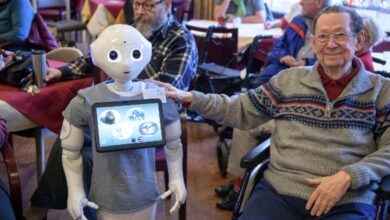Kushner admits to having four meetings with Russian authorities
The encounters with Kremlin authorities were held but there was no collusion, confirmed President Trump’s son-in-law

Jared Kushner, Ivanka Trump’s husband and political advisor of President Donald Trump, presented his statement in front of Congress about the investigation that linked him to the supposed Russian intervention in United States’ political affairs. In the declaration, Kushner recognized having had four meetings with the other nation’s civil servants close to President Putin’s government, but denied any unlawful pact between both parties.
“I did not collude, nor know of anyone else in the campaign who colluded, with any foreign government; I had no improper contacts. I have not relied on Russian funds to finance my business activities in the private sector”, Kushner stated. Moreover, the son-in-law of President Trump mentioned that the whole controversy started with the mistake of not reporting all of his foreign contacts when he began working for the government.
The four meetings he admitted to having were held in April, June, and December of 2016. The first one was with four ambassadors, which only lasted a few minutes, who offered a lunch invite that he declined, according to Kushner. The second one, which caused more public uproar, was a meeting with a Russian lawyer in the Trump Tower in New York City, New York. Nevertheless, Kushner denied that during the gathering the attendants discussed anything related to information leaks in order to harm the Democrats’ campaign, but rather they addressed a situation related to the Magnitski law about human rights violations.
The third and fourth meetings were held in December with the intention to establish a friendly and effective communication channel with President Putin’s government. “The fact that I was asking about ways to start a dialogue after Election Day should, of course, be viewed as strong evidence that I was not aware of one that existed before Election Day”, he affirmed. The businessman and political advisor said, about all four meeting, that they were short and didn’t have any profound political content; he also denied that there were any other phone calls or encounters besides the ones previously stated.
The tension between the United States and Russia started with the accusations about the cyber-attacks and information leaks with the intention to benefit Trump’s presidential campaign. An example of the above was the Democrats’ private email information published on Wikileaks during Hillary ClIGNORE INTOn’s campaign.
The rumors about Russia’s interference had grown stronger with the dismissal of the FBI director James Comey. The Democrat party affirmed that the layoff was strongly related to the investigation that the security director was conducting about the ties of Donald Trump with Vladimir Putin’s administration. Meanwhile, the government assures that the decision was taken after no progress was made with the inquiry.
There are a few others close to President Trump that have been accused to having political connections with Russia. The list includes Trump’s electoral campaign director Paul Manafort, who recognized receiving Money from a Ukrainian pro-Russian political party and the president’s security ex-advisor general Michael Flynn who resigned after it became known that he held phone calls with representatives of Russia’s government.
Latin American Post | Diana Cárdenas
Copy edited by Susana Cicchetto





